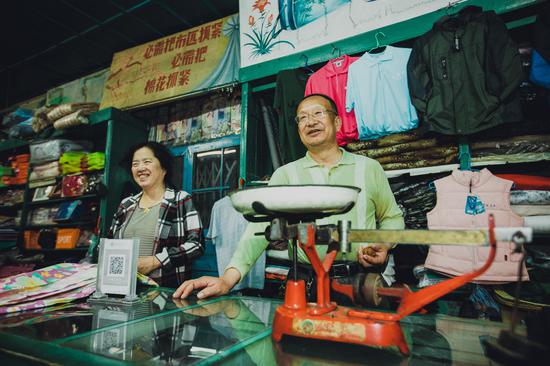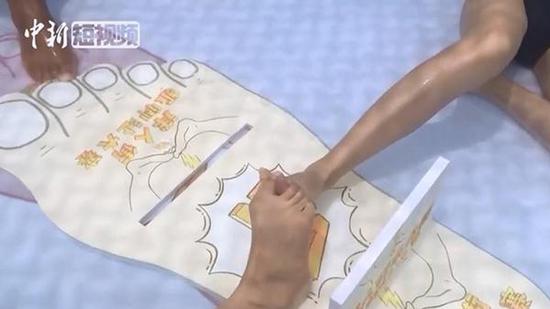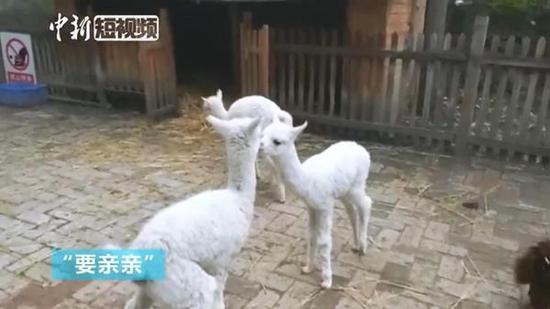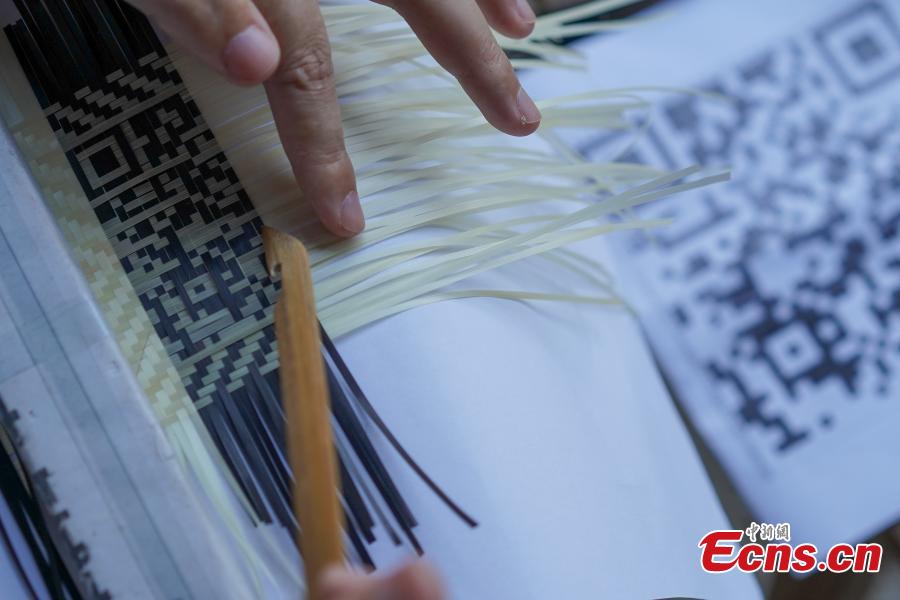
Yang Dujuan weaves a QR code using bamboo strips in Sansui County, Southwest China’s Guizhou Province, July 11, 2018. A former migrant worker, Yang began to lead other villagers to make bamboo creations in 2014, trained more than 300 locals, and has now reached annual sales surpassing one million yuan ($150,000). In 2018, she began offering bamboo strips made into QR codes for clients, a creative combination of traditional bamboo weaving and the emerging popularity of codes that smartphone users can scan to access rich information. Her creation priced at 200 yuan for products was popular online. (Photo: China News Service/He Junyi)
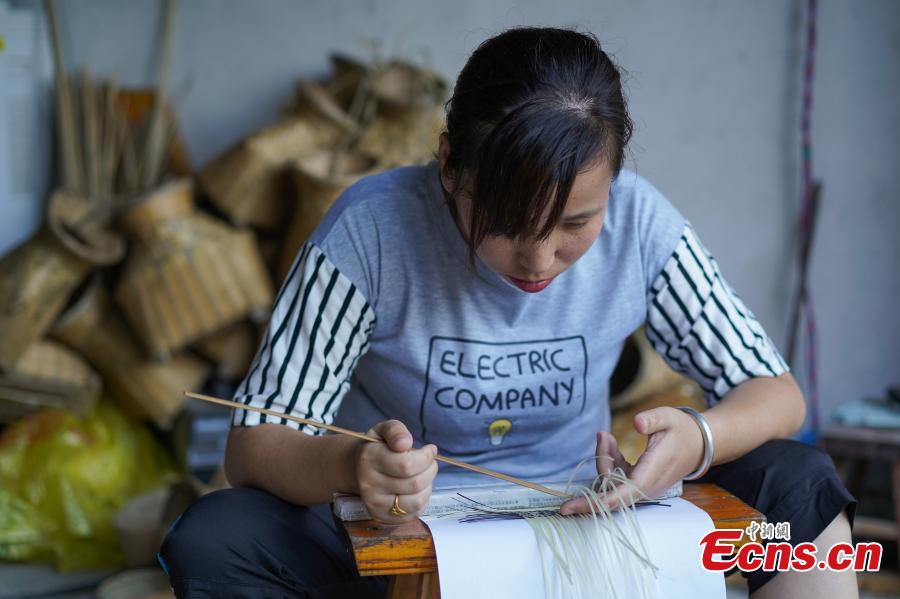
Yang Dujuan weaves a QR code using bamboo strips in Sansui County, Southwest China’s Guizhou Province, July 11, 2018. A former migrant worker, Yang began to lead other villagers to make bamboo creations in 2014, trained more than 300 locals, and has now reached annual sales surpassing one million yuan ($150,000). In 2018, she began offering bamboo strips made into QR codes for clients, a creative combination of traditional bamboo weaving and the emerging popularity of codes that smartphone users can scan to access rich information. Her creation priced at 200 yuan for products was popular online. (Photo: China News Service/He Junyi)
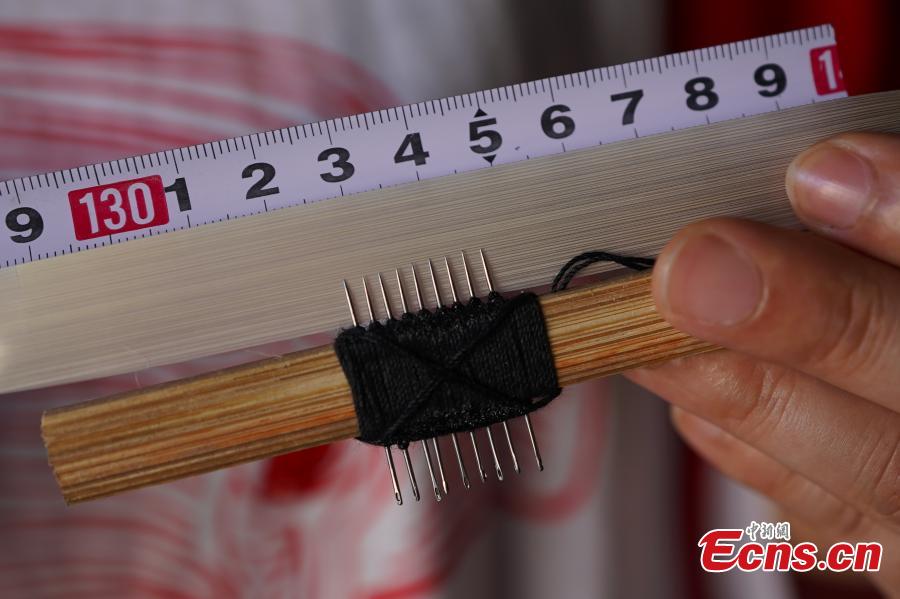
Yang Dujuan shows the tools she uses to make QR codes from bamboo strips in Sansui County, Southwest China’s Guizhou Province, July 11, 2018. A former migrant worker, Yang began to lead other villagers to make bamboo creations in 2014, trained more than 300 locals, and has now reached annual sales surpassing one million yuan ($150,000). In 2018, she began offering bamboo strips made into QR codes for clients, a creative combination of traditional bamboo weaving and the emerging popularity of codes that smartphone users can scan to access rich information. Her creation priced at 200 yuan for products was popular online. (Photo: China News Service/He Junyi)
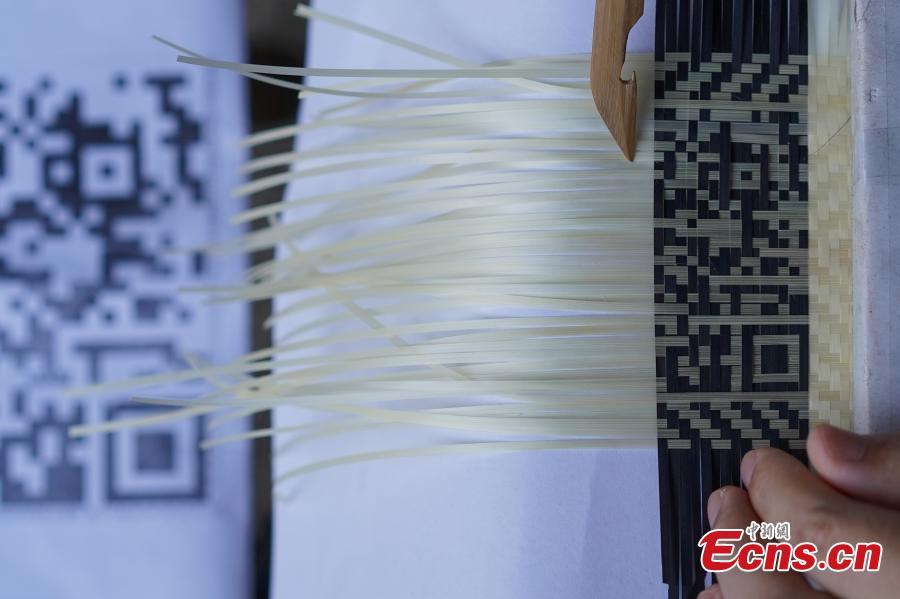
Yang Dujuan weaves a QR code using bamboo strips in Sansui County, Southwest China’s Guizhou Province, July 11, 2018. A former migrant worker, Yang began to lead other villagers to make bamboo creations in 2014, trained more than 300 locals, and has now reached annual sales surpassing one million yuan ($150,000). In 2018, she began offering bamboo strips made into QR codes for clients, a creative combination of traditional bamboo weaving and the emerging popularity of codes that smartphone users can scan to access rich information. Her creation priced at 200 yuan for products was popular online. (Photo: China News Service/He Junyi)

Yang Dujuan prepares bamboo strips for a creation in Sansui County, Southwest China’s Guizhou Province, July 11, 2018. A former migrant worker, Yang began to lead other villagers to make bamboo creations in 2014, trained more than 300 locals, and has now reached annual sales surpassing one million yuan ($150,000). In 2018, she began offering bamboo strips made into QR codes for clients, a creative combination of traditional bamboo weaving and the emerging popularity of codes that smartphone users can scan to access rich information. Her creation priced at 200 yuan for products was popular online. (Photo: China News Service/He Junyi)
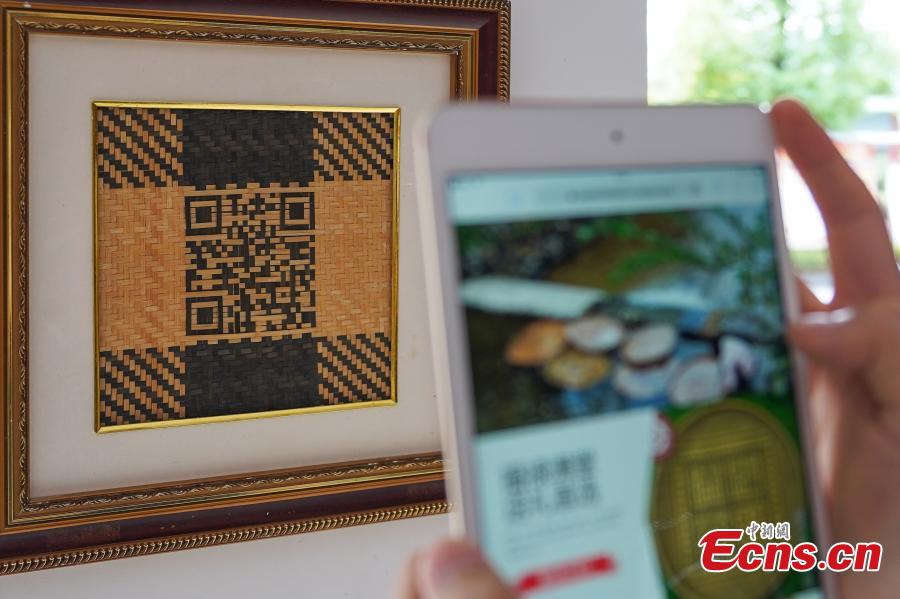
A visitor scans a QR code made from bamboo strips to access the online store of Yang Dujuan in Sansui County, Southwest China’s Guizhou Province, July 11, 2018. A former migrant worker, Yang began to lead other villagers to make bamboo creations in 2014, trained more than 300 locals, and has now reached annual sales surpassing one million yuan ($150,000). In 2018, she began offering bamboo strips made into QR codes for clients, a creative combination of traditional bamboo weaving and the emerging popularity of codes that smartphone users can scan to access rich information. Her creation priced at 200 yuan for products was popular online. (Photo: China News Service/He Junyi)
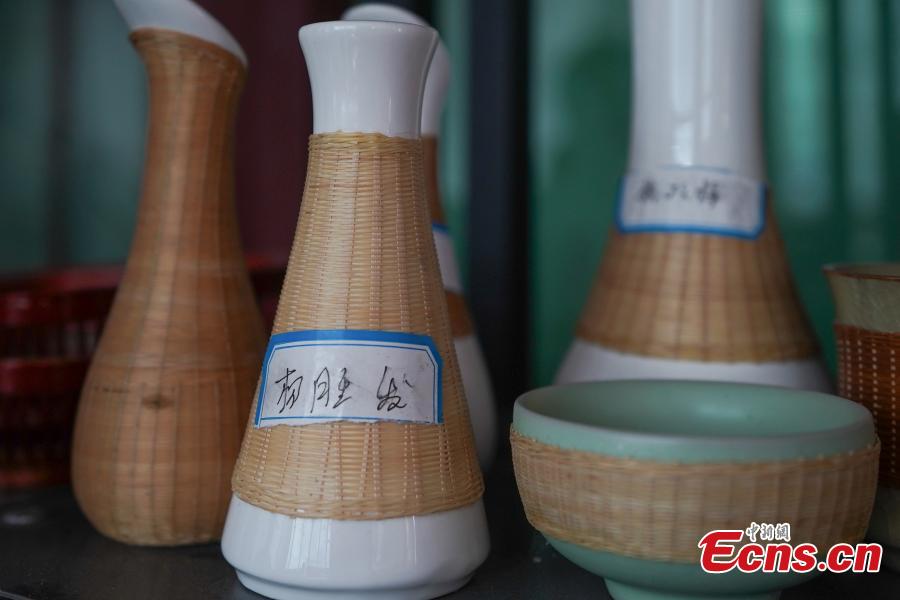
Bamboo works are on display in Yang Dujuan’s workshop in Sansui County, Southwest China’s Guizhou Province, July 11, 2018. A former migrant worker, Yang began to lead other villagers to make bamboo creations in 2014, trained more than 300 locals, and has now reached annual sales surpassing one million yuan ($150,000). In 2018, she began offering bamboo strips made into QR codes for clients, a creative combination of traditional bamboo weaving and the emerging popularity of codes that smartphone users can scan to access rich information. Her creation priced at 200 yuan for products was popular online. (Photo: China News Service/He Junyi)
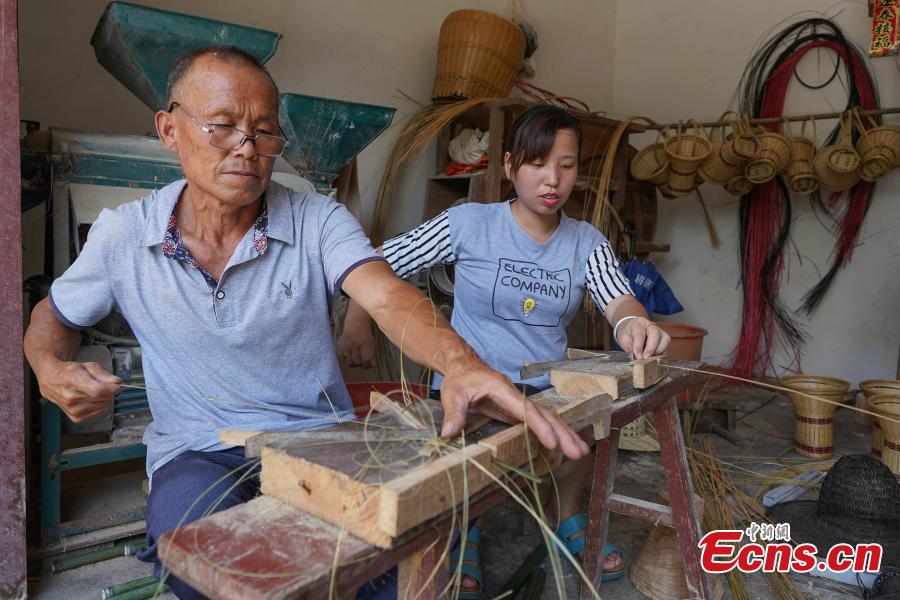
Yang Dujuan and Yang Guanglun, 65, prepare bamboo strips for a creation in Sansui County, Southwest China’s Guizhou Province, July 11, 2018. A former migrant worker, Yang began to lead other villagers to make bamboo creations in 2014, trained more than 300 locals, and has now reached annual sales surpassing one million yuan ($150,000). In 2018, she began offering bamboo strips made into QR codes for clients, a creative combination of traditional bamboo weaving and the emerging popularity of codes that smartphone users can scan to access rich information. Her creation priced at 200 yuan for products was popular online. (Photo: China News Service/He Junyi)













